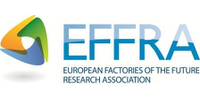Speakers
Lien Van de Kelder
Moderator
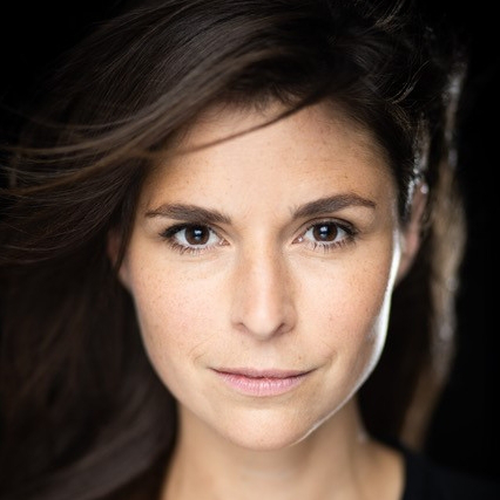
Lien Van de Kelder is a Belgian actress, known from several series on national television. She played one of the lead characters in the international series The Spiral, nominated for an Emmi Award.
She’s also a singer, touring with several bands, performing with well known artists as Jan De Smet (De Nieuwe Snaar) and Mauro Pawlowski (Deus). She also presented several television programs and presents every year events for Agoria, in Dutch, French and English. Recently she’s won the award for “Best Belgian Reading Voice”, for the audiobooks she’s read for Storytel.
During her 20 year career as an actress, singer and presenter she’s worked as a lawyer and consultant in Intellectual Property. She studied law in the south of France, in Montpellier, graduated cum laude at the KULeuven and finished a second bilingual master in Intellectual Property, also cum laude, at the HUB in Brussels. For 5 years, she has her own law firm in Mechelen. Concentrating mostly on copyright and trademarks. She’s mother of two kids, Jeanne (9) and Victor (7) and stepmom of Cato (24) and Stine (22). Her partner is Hans Herbots, an international film director.
Peter Dröll
Director for Prosperity, Directorate-General Research and Innovation of European Commission
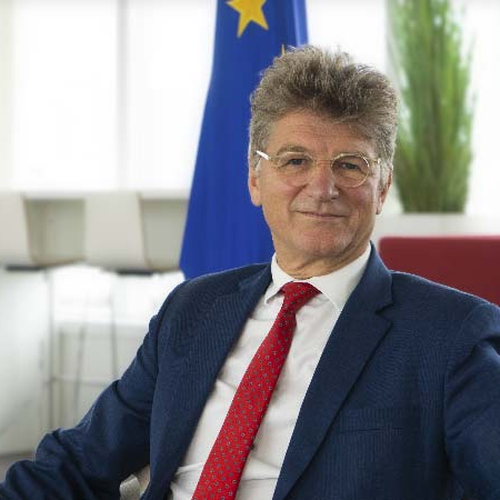
Peter has been working in the European Commission for more than 20 years with positions in the environment, enlargement negotiations, industry policy, Innovation and research. He was a Cabinet member of Enlargement Commissioner Günter Verheugen and Head of Cabinet of the Science and Research Commissioner Janez Potočnik. Since 2010 he has been at Directorate-General Research and Innovation, where he was first responsible for Innovation and then for Industrial Technologies. Following the re-orientation of DG Research and Innovation towards sustainability, his competencies have been enlarged to include industrial R&I agendas, business intelligence, and knowledge
valorisation policies. Before joining the European Commission in 1991, Peter worked as a lawyer in a German law firm. Peter is a lawyer by training with a doctorate in German constitutional law and European law.
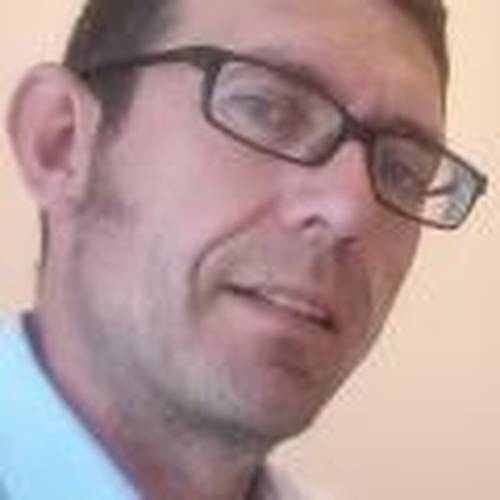
After obtaining his master of electro-mechanical engineering at the University of Leuven, Chris got involved fairly quickly in European research and innovation programmes.
At EFFRA, Chris Decubber supports the consensus building about research and innovation priorities among the industrial and research community for the Made in Europe' Partnership under Horizon Europe. Chris supports the monitoring of the outcome and progress of the 'Factories of the Future' and the ‘Made in Europe’ Partnership and works on knowledge transfer mechanisms that enhance the impact of the research and innovation programme. Chris also supports the ConnectedFactories Coordination Action, focussing on community building in the area of digitalisation of manufacturing.
Thomas Bauernhansl
Prof. Dr.-Ing. / Director of Fraunhofer Institute for Manufacturing Engineering and Automation IPA
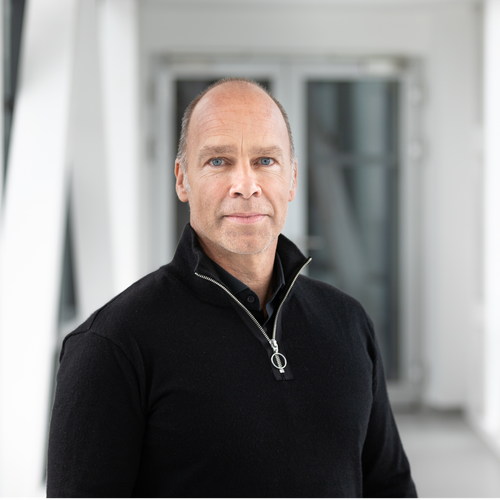
Professor Dr.-Ing. Thomas Bauernhansl has held his current position as Director of the Fraunhofer Institute for Manufacturing Engineering and Automation IPA in Stuttgart, Germany, since September 2011. He also serves as Director of the Institute of Industrial Manufacturing and Management (IFF) at the University of Stuttgart. His scientific focus is on digital and biological transformation, production organization, factory planning, automation and robotics.
Bauernhansl studied mechanical engineering at RWTH Aachen University. After completing his PhD with honors, he embarked on his career with Freudenberg Sealing Technologies in 2003, advancing to become Director of the Technology Center at FST. His key work areas included site planning, factory planning, outsourcing, technology management and lean production. Lastly, Bauernhansl was responsible for optimizing the “global footprint” of the production network throughout the regions of Europe, North America and South America, comprising over 50 production sites.
Bauernhansl serves on diverse advisory boards and management committees in industry, associations, research and government. He is a member of the WGP, the German Academic Society for Production Engineering, as well as being a member of the strategy committee of the German government’s “Platform Industrie 4.0” and Vice Chair of the Steering Committee Alliance Industrie 4.0 BW. He has written and edited numerous books on topics spanning adaptability in manufacturing, Industrie 4.0 and production management.
Klaus Beetz
CEO of EIT Manufacturing ASBL
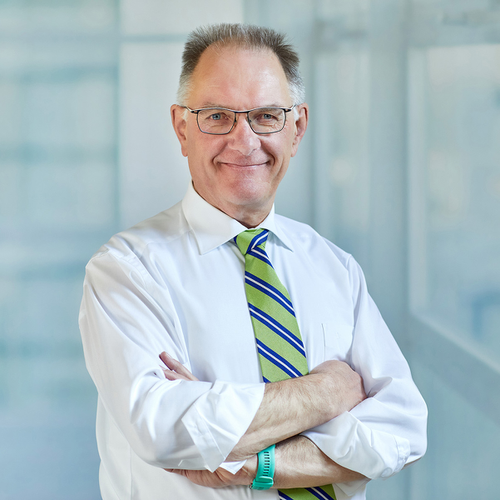
Klaus Beetz has more than four decades of industry experience in software and system engineering, including five years of an international delegation to Eastern Europe. Building on degrees in mathematics and philosophy, he started his professional career in software engineering at Nemetschek AG, a leading information technology company in the AEC (Architecture, Engineering, and Construction) sector.
Among other duties, he was a member of the board of trustees at the European Software Institute (ESI), a member of the executive board of Digital Europe (DE), member of the steering group at the Eureka cluster “Information Technology for European Advancement” (ITEA) and member of the board of the Alliance Internet of Things Innovation (AIOTI).
He joined Siemens in 2002 as head of the Global Technology Field “Software & System Engineering”, responsible for worldwide research and technology transfer of innovative engineering technologies for software-intensive systems and digital technologies. Since 1 January 2020, he has been CEO of the Knowledge and Innovation Community EIT Manufacturing.
George Chryssolouris
Professor at University of Patras
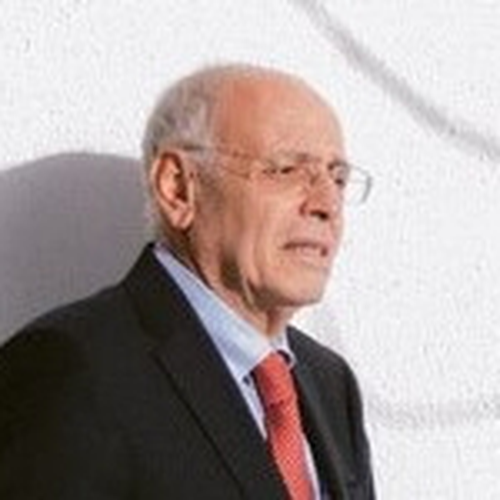
George Chryssolouris is Professor (1993-) and was the Chairman between 2003 and 2007 of the Department of Mechanical Engineering and Aeronautics / Laboratory for Manufacturing Systems and Automation (LMS) / University of Patras, Greece. He is the founding director of LMS (1993) focused on research and development in cutting edge scientific and technological fields.
Professor Chryssolouris was, for 2006-2007, the President of CIRP, the Paris based leading International Academy for Production Engineering. He is a member of the High Level Group of the European Technology Platform on Manufacturing (Manufuture) and the founder / former Vice Chairman of the European Factories of the Future Research Association (EFFRA). He was the coordinator of the newly (2018) established Innovation community EIT Manufacturing. Professor Chryssolouris worked at MIT (Massachusetts Institute of Technology) in the USA between 1980 and 1993. Professor Chryssolouris has more than 400 publications in international
scientific journals and refereed conferences. He is the author of two books published by Springer Verlag. He was granted the Frederick W. Taylor Research Medal by SME (2001) for his
outstanding contributions to manufacturing research.
Paola Fantini
Director of Education at EIT Manufacturing
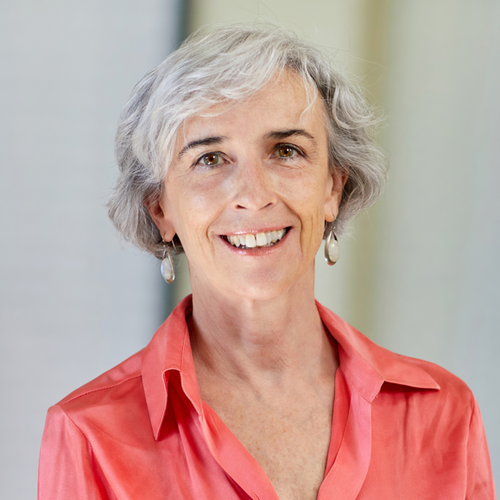
Thomas Bergs
Head of Chair at WZL RWTH Aachen University
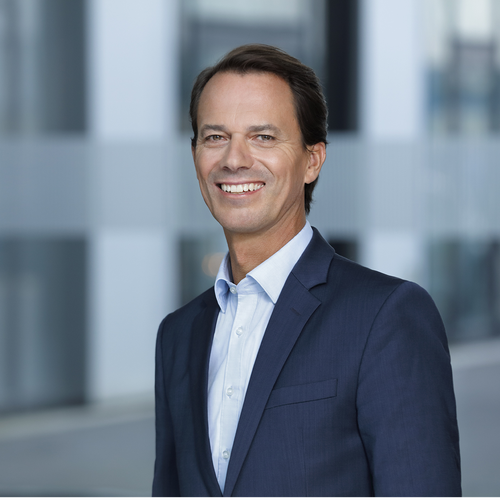
In his capacity as a Member of the Board of Directors of the Fraunhofer Institute for Production Technology IPT, Professor Thomas Bergs leads the Process Technology Division and is the Chair of Manufacturing Technology at the Laboratory for Machine Tools and Production Engineering WZL at the RWTH Aachen University.
Thomas Bergs studied design engineering at the Rheinisch-Westfälische Technical University, Aachen and graduated in 1995. In 2001 he went on to earn a doctorate in engineering at the RWTH Aachen University for which he was awarded the Borchers Plaque. He also graduated as an Executive Master of Business Administration in 2011.
Thomas Bergs was a research associate in the Process Technology Section at the Fraunhofer Institute for Production Technology IPT in Aachen from 1995 to 2000. Since 2001 he has also held the position of Managing Director under Professor Fritz Klocke as institute head.
In 2018 Thomas Bergs was appointed as Professor at the Chair of Manufacturing Technology at the Laboratory for Machine Tools and Production Engineering WZL of the RWTH Aachen University and as Director of the Process Technology Division at the Fraunhofer Institute for Production Technology IPT. As the successor to Professor Fritz Klocke, he is also a member of the Board of Directors of both production engineering institutes.
The main focus of his ongoing research activities include the digital transformation of manufacturing technologies – so called networked adaptive production.
Jose Carlos Caldeira
Board Member at INESC TEC
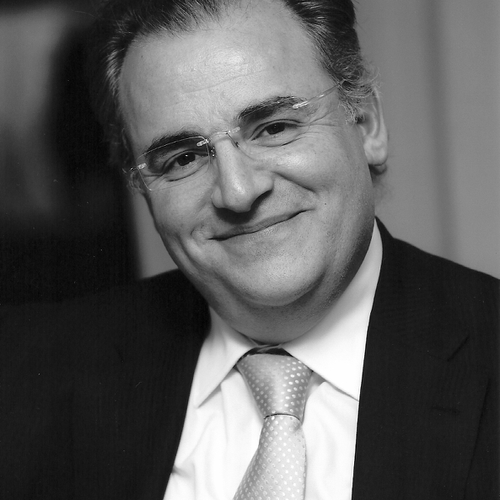
José Carlos Caldeira is member of the Board of INESC TEC and also member of the Board of PRODUTECH – Production Technologies Cluster. He is member of the MANUFUTURE High Level Group and Chairman of its Implementation Support Group. He is also member of the Board of EFFRA – European Factories of the Future Research Association. He is invited associated professor at Porto Faculty of Economics, on Innovation Policies. Between October 2014 and January 2018, he was the President of ANI – Agência Nacional de Inovação - the Portuguese National Innovation Agency.
Paolo Calefati
CEO of PRIMA ADDITIVE S.R.L.
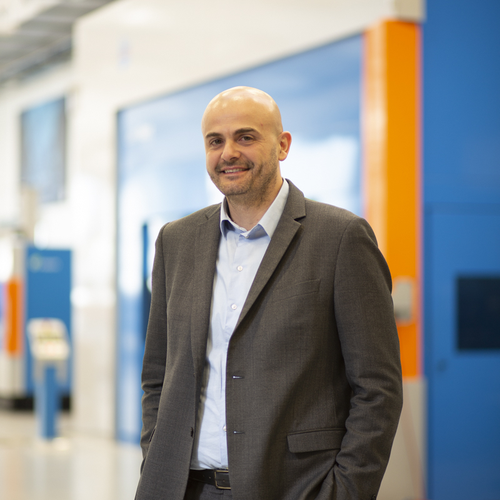
Paolo Calefati is the CEO of Prima Additive s.r.l.
Prima Additive is a company of Prima Industrie Group focused on production and commercialization of laser based additive manufacturing machines and tools for metal components. He started his career in Prima Industrie as electronic designer and project manager and in 2018 he was appointed as head of Innovation and Additive Manufacturing at Prima Industrie.
As Innovation Vice President of Prima Industrie, he was responsible of the innovation and R&D funded programs for the development of the new technologies in laser for material processing. He was coordinator of several European funded projects such as ENEPLAN (Energy Efficient Planning System), Whiter (white room based on reconfigurable robotic island for optoelectronics components), Borealis (The 3A energy class flexible machine for new additive and subtractive manufacturing on next generation of 3D metal parts), ICP4LIFE (Integrated Collaborative Platform for managing the product service Engineering Lifecycle), 4D hybrid additive technologies, Mesomorph (all-in-one machine for hybrid technologies enabling high value added multi-scale integrated micro optoelectronics).
He’s actually part of the board of the Italian Competence Center CIM4.0. He was elected as board member of the stakeholders of the European association Photonics 21, he’s member of the EIT (European Institute of Innovation and Technology) Manufacturing Supervisory Board.
His background is in Electronic Engineering, he got a post graduate degree in Industrial Research in automation technologies and a Master in Business Administration.
Marta Candeias
Funding Research Advisor at Instituto Superior Técnico, University of Lisbon
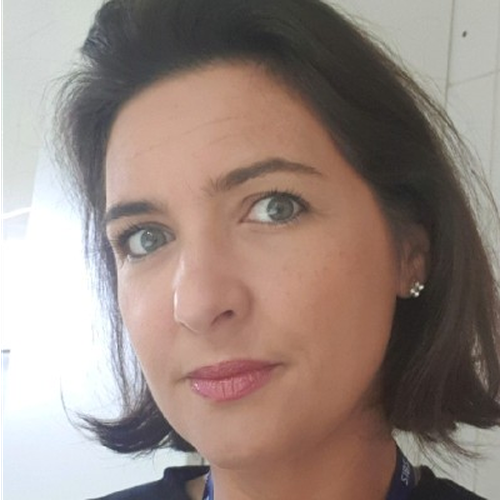
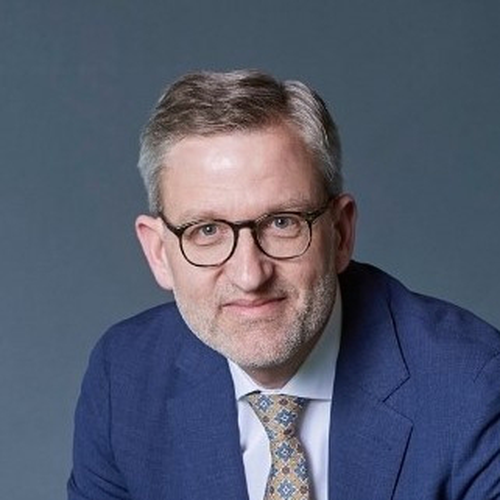
Since June 2014 Herman has been Managing Director of Sirris, leading the collective centre for the technology industry in its mission to help companies to develop, test and deploy technological innovations. He is leading 140 technological experts who use high-tech infrastructure within 8 sites spread over the country to work on over 1,800 projects per year for about 1,500 companies.
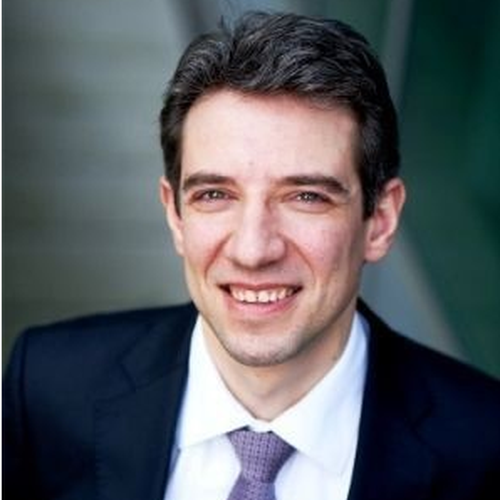
Koen De Leus
Chief Economist at BNP Paribas Fortis
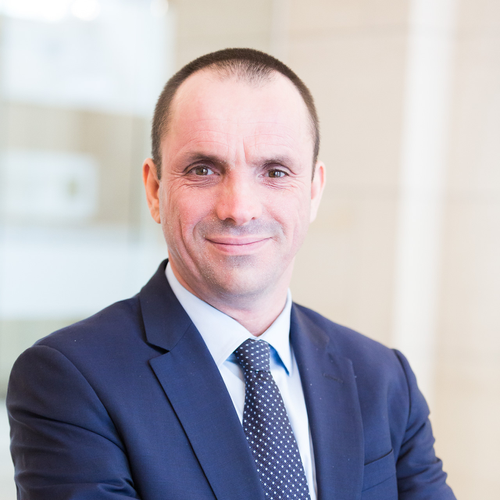
Koen De Leus (b. 1969 in Bonheiden) graduated in Commercial Science from the Saint Aloysius Economics High School (EHSAL). Working as an analyst for a daughter company of Uitgeversbedrijf Tijd, he was from 1998 onwards closely involved in the design and calculation of European sector indices. From 2004 to January 2006 he was Chief Economist for Uitgeversbedrijf Tijd, the company which publishes business daily newspaper De Tijd and investment journal De Belegger.
From 2006 to July 2012, Koen served as a Market Strategist at Bolero, the online broker of KBC Securities, before moving over to take up the post of Senior Economist at the parent company KBC in August 2012. Since September 2016 he is Chief Economist at BNP Paribas Fortis. He is also a guest lecturer in ‘Behavioral Finance’ on the Investment Management programme at EHSAL Management School and Vastgoedkunde at KUL.
Hosuk Lee-Makiyama
Director of European Centre for International Political Economy (ECIPE)
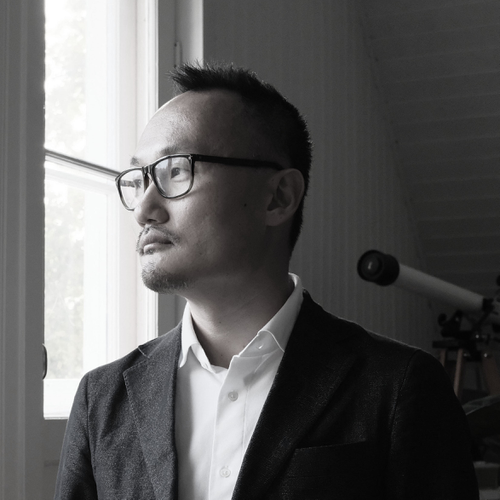
Hosuk Lee-Makiyama is Director of the European Centre for International Political Economy (ECIPE), a leading Brussels think-tank dedicated to international economic affairs. He is also a senior fellow at the London School of Economics.
His expertise and publications span trade negotiations, economic governance and technology. His advice has been sought by G7/G20 governments and all the principal international organisations on economic cooperation, including APEC, ASEAN, the EU institutions, OECD, WTO, World Bank and the UN agencies.
He has been called as an expert witness on inquiries in the US Congress, UK House of Commons, parliaments across Europe and other legislative assemblies. Lee-Makiyama is also a regular commentator on BBC, Financial Times, CCTV, Al Jazeera, CNBC, CNN and Monocle 24.
Prior to academia, he was posted to the EU, WTO and the UN for the Government of Sweden. He has also worked in the private sector. He is a native citizen of Sweden, born in Tokyo, with degrees in Law, Economics, and Government from London, Stockholm and Massachusetts.
Andrew Lynch
Chief Innovation Officer at Irish Manufacturing Research
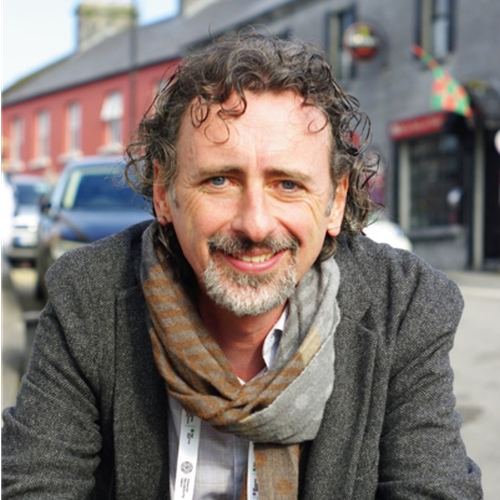
Andrew is the International Vice President of the EUREKA SMART Manufacturing Board of Directors, he leads the ManuFuture ETP Working Group (State Aid Strategies- Research & Innovation) and is the national delegate to the European manufacturing policy platform, ManuFuture High Level Group (HLG). Andrew is a member of the Made in Europe Partnership Board and was the founding chair of the European Industry 4.E Lighthouse Initiative (LIASE) within ECSEL. Andrew is on the Board of Directors of both the Irish Advanced Manufacturing Training Centre of Excellence (AMTEC) and the W8 Innovation Centre (Ireland NW). He is the founding chair of the Irish National Steering Committee on Collaborative Robotics, a member of the Ingenuity Executive Steering Committee and is on the National Advisory Board for the Digital Manufacturing Futures Centre (AIM).
Andrew is a contributing expert on several key international policy documents for manufacturing, including the ManuFuture policy document (Vision 2030), the EFFRA Made in Europe program, ManuFuture ETP Strategic Working Group Initiatives, the ECSEL LIASE I4 Whitepaper on the Future of Manufacturing and the ECS SRA (Electronic Components & Systems, Strategic Research Agenda).
He holds a degree in biotechnology, a master’s in environmental analytical chemistry and a PhD in Engineering. Happily married with two adored daughters, in his spare time, Andrew enjoys golf, soccer and hill climbing.
Joanna Drake
Deputy Director-General of European Commission
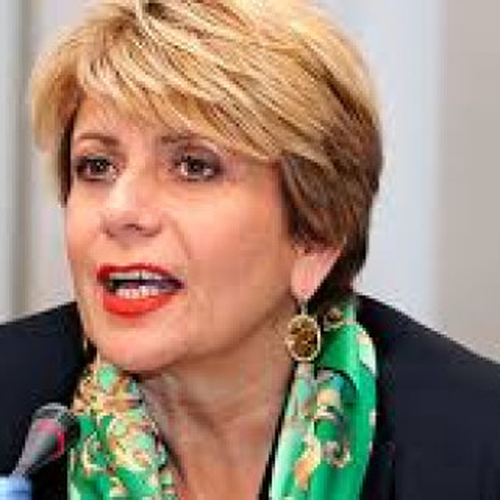
Since the 1st October 2021, Joanna Drake has been the Deputy Director-General in charge of Implementation, Impact & Sustainable Investment Strategies – Directorate-General Research and Innovation (RTD)
Ulla Engelmann
Head of Unit at DG GROW, EC
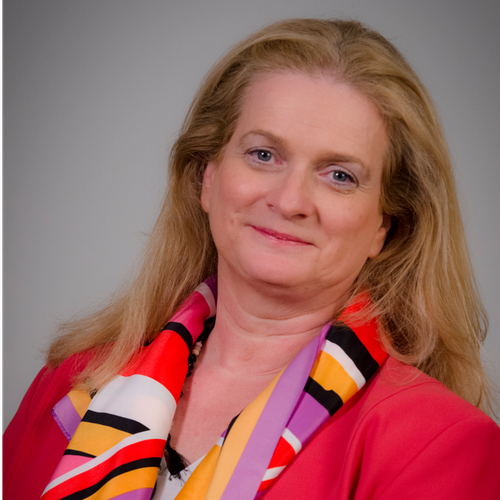
Ulla Engelmann is the Head of Unit for Industrial Forum, Alliances and Clusters within DG GROW, the Directorate General being responsible for Internal Market, Industry, Entrepreneurship and SMEs, at the European Commission. Her portfolio covers the work of the industrial forum, governance of industrial alliances, the organisation of the EU Industry Days, the management and coordination of networks such as EEN (Enterprise Europe Network), clusters and Erasmus for Young entrepreneurs. In previous functions, she was responsible for Social Economy, Pact for Skills, women entrepreneurship and entrepreneurship education. She worked at the Joint Research Centre (JRC), the in-house science service of European Commission. She started in the JRC in Ispra (Italy) in 1993 as a post-doc in fusion research and moved on to manage various units (communication, international relations, and others). Dr. Engelmann holds a PhD in analytical and radiochemistry completed at the National Research Centre in Karlsruhe.
Andreas Faath
Head of Departement Machine Information Interoperability at VDMA
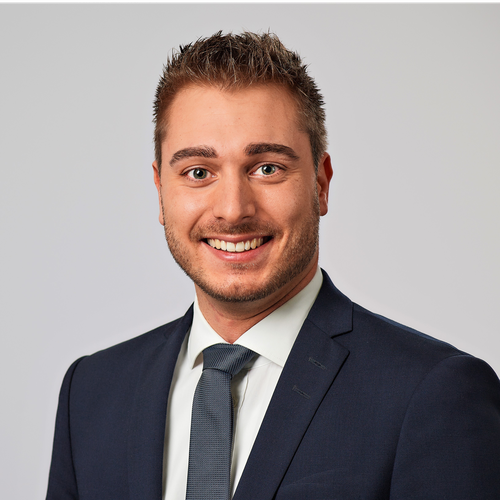
Andreas Faath, Managing Director at VDMA Machine Information Interoperability is responsible for the Interoperability activities effecting the mechanical engineering industry including OPC UA. Regarding OPC UA he manages the development of the so called “Global Production Language” in which more than 600 companies worldwide are involved. This positions him as an important contact for the international mechanical and plant engineering industry regarding OPC UA standardization and intelligent production. Due to the close cooperation with numerous companies in the mechanical and plant engineering industry, he represents their wishes and requirements in those fields. Prior to his employment at the VDMA, Mr. Faath studied mechanical and plant engineering and was a scientist at the Technical University of Darmstadt with focus on Digitalization and IIOT. Afterwards he worked in research and development for process optimization and digitalization in the field of vehicle testing at General Motors.
Andreas Faath
Head of Departement Machine Information Interoperability at VDMA
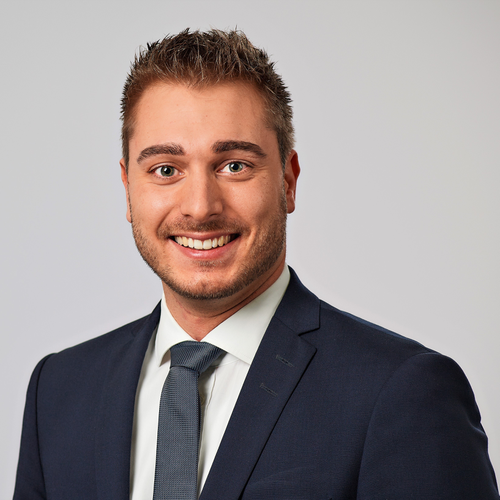
Andreas Faath, Managing Director, VDMA Machine Information Interoperability is responsible for the Interoperability activities effecting the mechanical engineering industry including OPC UA. Regarding OPC UA he manages the development of the so called “Global Production Language” in which more than 600 companies worldwide are involved. This positions him as an important contact for the international mechanical and plant engineering industry regarding OPC UA standardization and intelligent production. Due to the close cooperation with numerous companies in the mechanical and plant engineering industry, he represents their wishes and requirements in those fields. Prior to his employment at the VDMA, Mr. Faath studied mechanical and plant engineering and was a scientist at the Technical University of Darmstadt with focus on Digitalization and IIOT. Afterwards he worked in research and development for process optimization and digitalization in the field of vehicle testing at General Motors.
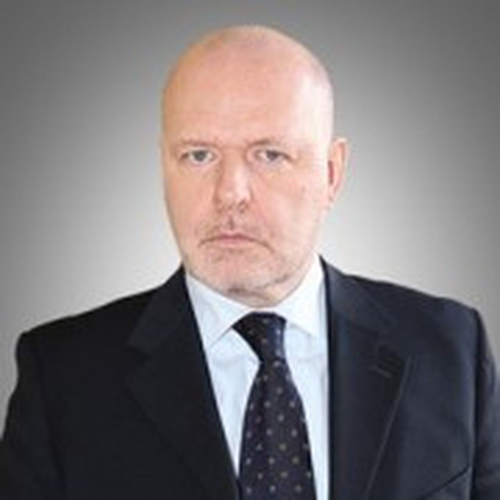
Maurizio Gattiglio was the Executive Vice-President of Prima Electro S.p.A., the parent company of Prima Industrie S.p.A. is a leading engineering corporation operating worldwide in the field of industrial lasers, sheet metal machinery and electronics. He is actually the Chairman of Manufuture ETP.
Maurizio Gattiglio obtained a degree in mechanical engineering in 1984 from the Polytechnic of Turin.
Konstantinos Georgoulias
Director of RIS & EU Affairs at EIT Manufacturing
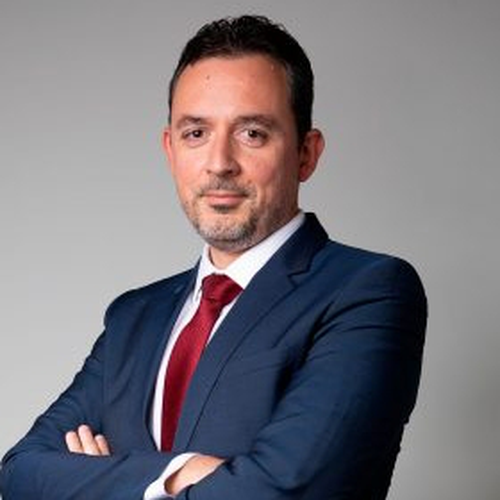
Dr. Georgoulias is the Director of the Regional Innovation Scheme (RIS) and EU Affairs at EIT Manufacturing, managing the outreach of EIT Manufacturing to twenty-two (22) countries for enhancing their innovation capacity. He owns a PhD in Mechanical Engineering and Aeronautics and has been actively involved in research and innovation activities for more than 20 years. He has worked on a variety of technologies and topics for the manufacturing field, and lately on circular economy for manufacturing. Dr. Georgoulias has cooperated with major automotive and aerospace companies, as well as with several companies from various other industrial sectors, such as white goods, footwear industry, commercial refrigeration, manufacturing equipment, consumer goods, furniture, and more.
Due to his achievements, he has been invited to give several presentations to large International Workshops and Conferences, and has participated as invited member to forums for the future of European Manufacturing.
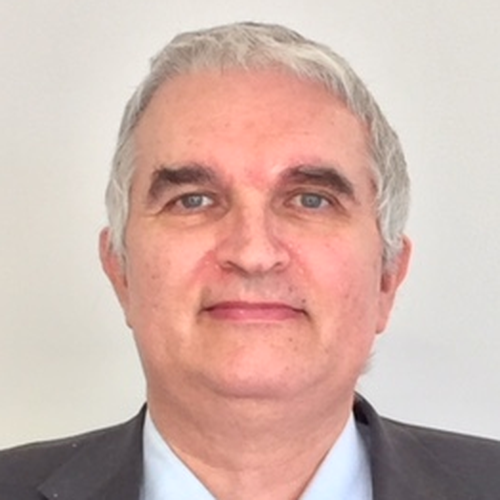
Sergio Gusmeroli was born in Sondrio (Italy) in 1961, he finalized his education at Politecnico di Milano in 1986. After several experiences in different branches of the ICT domain, in June 2000, he was appointed director
and operating manager of the International Research & Innovation Unit of TXT e-solutions, an IT company leader in the EU for Supply Chain management solutions. In TXT he coordinated diverse FP7 EC-funded projects in the ICT for Manufacturing domain: COIN, MSEE, TELLME, FITMAN, OSMOSE. Since 2015, Sergio has been a senior research coordinator for Politecnico di Milano and is coordinating the H2020 Factories of the Future AI REGIO project about Digital Innovation Hubs for AI Digital Transformation of Manufacturing SMEs. He is the author of more than 30 publications/papers in Italian and International magazines and conferences. His main areas of competence and experience include ICT for manufacturing, Internet of Things, Enterprise Interoperability, and Future Internet technologies.
Juliane Hess
Bosch Rexroth, Senior Project Manager at Bosch Rexroth
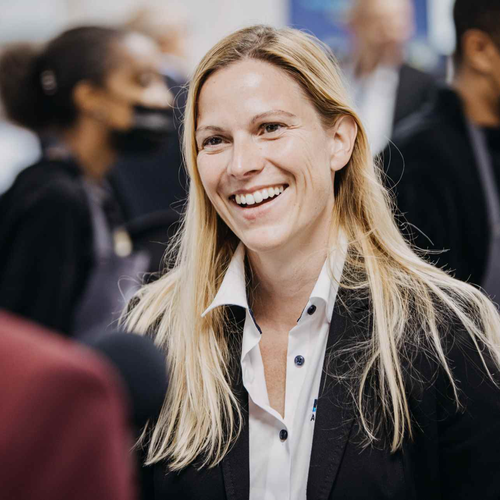
Juliane Hess currently works as Senior Project Manager at Bosch Rexroth and specialises in digitalising manufacturing processes. In her current role, the industrial engineer is building new business opportunities for external customers with the Productivity Boosters team of Bosch Rexroth.
With 16 years of working experience, among other things, in the areas of production engineering, project management and product management, she was previously responsible for the improvement and optimisation of workflows and processes across different company divisions. As the liable coordinator for Industry 4.0 in manufacturing for all plants of Bosch Rexroth, she held global responsibility for the digitalisation strategy in production and their implementation planning in the individual plants.
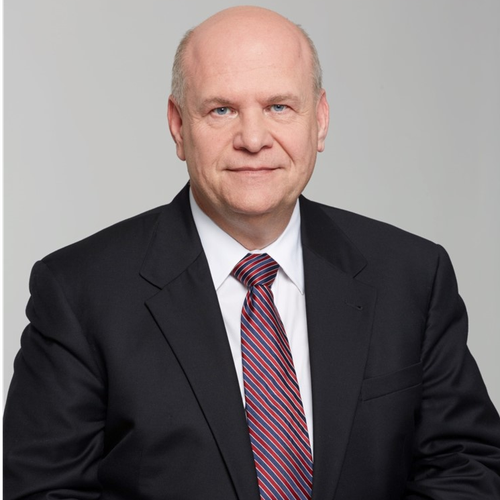
As a graduate in business administration from the University of Innsbruck and mechanical engineer, Hannes Hunschofsky can boast almost 40 years of experience in management positions at well-known industrial companies in Austria and abroad. As Managing Director of the EIT Manufacturing CLC East (European Institute of Innovation & Technology), he significantly contributes to strengthening and further developing global competitiveness and sustainable production for Europe as an industrial location. The involvement of research and teaching and cooperation with renowned universities worldwide have always been part of his recipe for success in meeting industry challenges with the latest technologies.
Amaya Igartua
Coordinator of European Actions in Materials at TEKNIKER
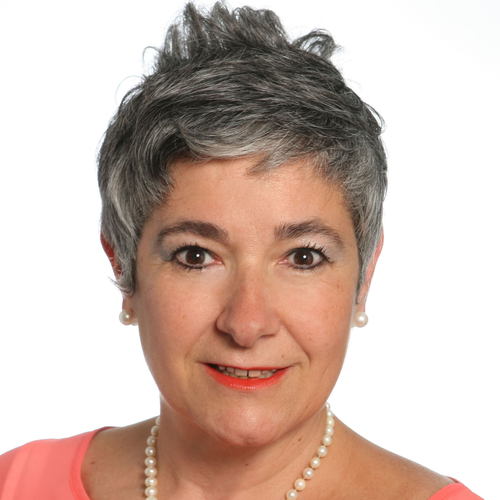
Amaya is the Coordinator of European Actions in Materials in the Research Institution TEKNIKER, co-secretary of the European Platform of Materials EUMAT, and vice-president of the International Tribology Council. She has been head of the Tribology Unit from TEKNIKER for 10 years. She represents in the Meeting also to Domenico Stocchi, from ECOR International, Coordinator of EUMAT Working Group in Materials for Additive manufacturing.
Malte Lohan
Director General of ORGALIM
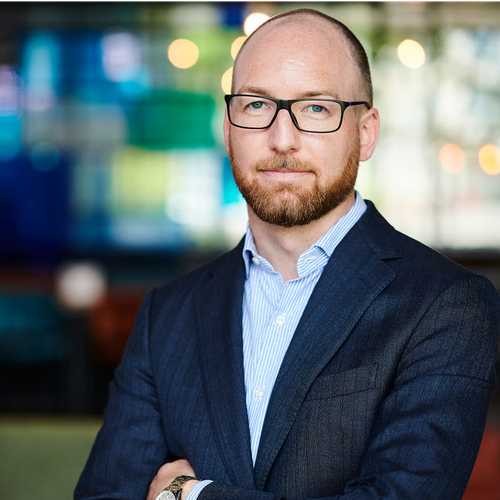
Malte Lohan is the Director General of Orgalim, Europe’s Technology Industries, speaking for innovative companies spanning the mechanical engineering, electrical engineering and electronics, and metal technology branches. Together they represent the EU’s largest manufacturing sector, generating annual turnover of around €2,480 billion, manufacturing one-third of all European exports and providing 10.97 million direct jobs. Appointed Orgalim Director General in January 2018, Malte is responsible for setting Orgalim’s strategy, acting as the senior representative of the European technology industries in Brussels and managing the operations of the association. He joined Orgalim from Anheuser-Busch InBev, the world’s leading brewer, where most recently he was Head of Corporate Affairs for AB InBev’s European region. Prior to joining AB InBev in 2014, Malte was Public Affairs Director at the World Federation of Advertisers (WFA). He has also worked at Interel, one of Brussels’ leading public affairs agencies, and in the European Parliament. Malte has held numerous voluntary leadership positions, including President of the Society of European Affairs Professionals (SEAP), which represents the interests of the public affairs community in Brussels. Malte obtained his BA in philosophy and economics at the LSE and went on to complete an MSc in political science at LSE. In 2016, he took part in a corporate MBA programme at AB InBev.
Maria Chiara Magnanini
Senior Researcher at Politecnico di Milano
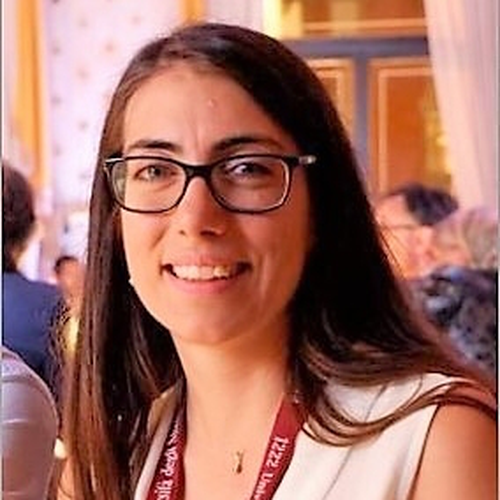
Maria Chiara Magnanini is a Senior Researcher at the Department of Mechanical Engineering in Politecnico di Milano, Italy. Her background includes experience in the automotive sector before pursuing a PhD in Mechanical Engineering at Politecnico di Milano, with a thesis on analytical models for the design and operations of complex manufacturing systems, having a focus on assembly systems.
She spent a visiting period at the University of Texas at Austin, where she started a collaboration for research activities on integrating quality and process control in semiconductor manufacturing. In Politecnico, she is mainly involved in research and industrial projects related to optimising the design and operations of manufacturing and remanufacturing systems, using the integration of advanced statistical methods, digital models and optimization algorithms. Her main areas of competence involve zero-defect manufacturing, Digital Twins and Cyber-Physical Production Systems.
Eric Maiser
Head of VDMA Future Business | Chairman of Manufuture BIM
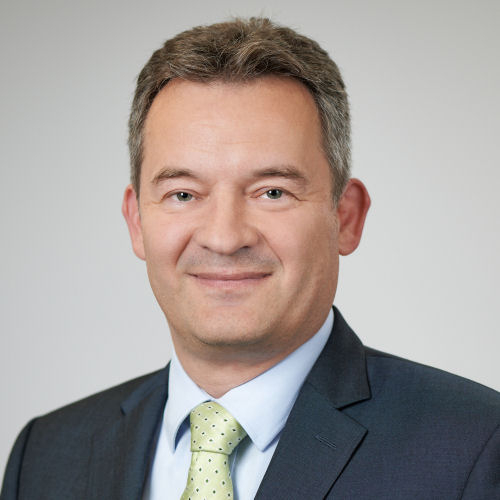
Dr Eric Maiser is the head of the VDMA Competence Center Future Business. This think tank identifies and harnesses relevant trends for the mechanical and plant engineering industry with trend radars, scenario studies and corporate foresight. His field of activity there is as diverse as the spectrum of the machinery industry, ranging from digitalization to sustainability, covering technical as well as societal, economic, ecological and policy aspects. During his work on a scenario study on “Biologicalisation of Industry,” he became involved in the newly founded Manufuture sub-platform “Biointelligent Manufacturing BIM” and has been elected chairman in 2021.
Eric Maiser joined VDMA, the mechanical engineering industry association in 2000. As Managing Director of the electronics production department, he established new industry groups there, including flat panel displays, photovoltaics and battery production. In 2015 he started VDMA Future Business as a new service for members and for harnessing internal knowledge, widening its scope with VDMA Startup Machine in 2017. He has been active in Industry 4.0 projects since 2002. Before VDMA, he worked in microsystems technology and technology transfer. His research work in Germany and the USA included superconductors, optics, and quantum physics. In his career, he served on several advisory boards and management committees, nationally and internationally.
Sotiris Makris
Senior Project Manager, Head of Robotics, Automation& Virtual Reality at LMS-University of Patras
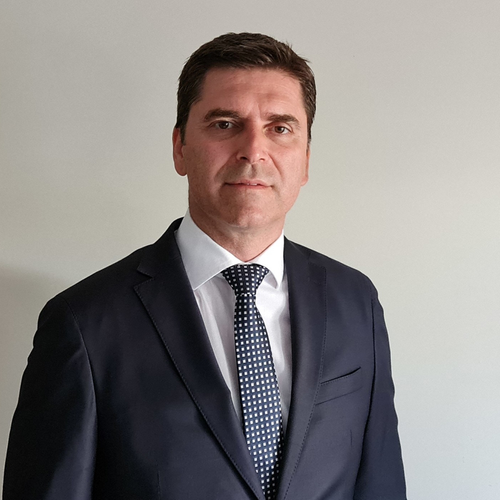
Sotiris Makris is Head of Robotics, Automation and Virtual Reality in Manufacturing at LMS. He has been leading research activities on Artificial Intelligence applications in manufacturing for more than 25 years, pursuing the challenge of Flexible and Resilient Manufacturing and Production Networks. He has deeply investigated the subject of cooperating robots in two main directions, namely human-robot collaboration and robot-robot collaboration. He has implemented several solutions validating these ideas in the industry. He has served as coordinator of several European-funded projects since FP4 to Horizon Europe. He has been serving as the Executive Director of the "Teaching Factory Competence Center", which is oriented toward delivering Industry 4.0 oriented Training and Innovation services to the industry. He has published more than 170 scientific articles, one book and several Encyclopedia entries, Editorials and White papers. He is an Associate Member of the International Academy of Production Engineering-CIRP.
Grzegorz Malinowski
Director of Institute of Organisation and Management in Industry ORGMASZ
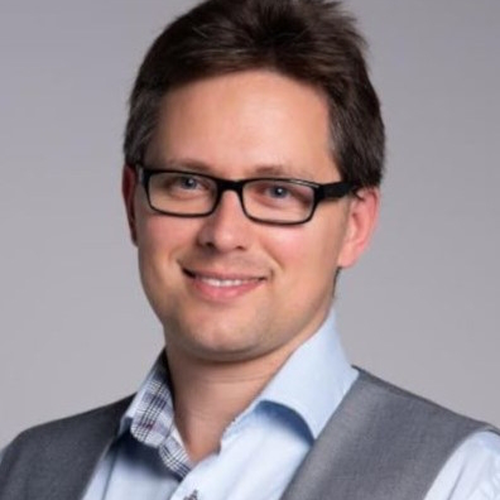
Dr Grzegorz Malinowski, Director of the Łukasiewicz Research Network - Institute of Organisation and Management in Industry ORGMASZ, Deputy Director of Research and Development.
Grzegorz Malinowski has PhD in Economics, a master degree in Economics and in philosophy is an assistant professor at Kozminski University. He specializes in macroeconomics research. He has extensive experience working in the industry: He has held a number of positions in banking, offered consulting services, worked in sales in a number of areas, and handled financial risk management in companies. He is a member of the TIGER center, which investigates the problems of economic development in the context of globalization.
He holds a master’s in Financial Management and in philosophy and a PhD in Economics.
Eleonora Marino
Responsible for the development of the Prima Open Additive business program at Prima Industrie SpA
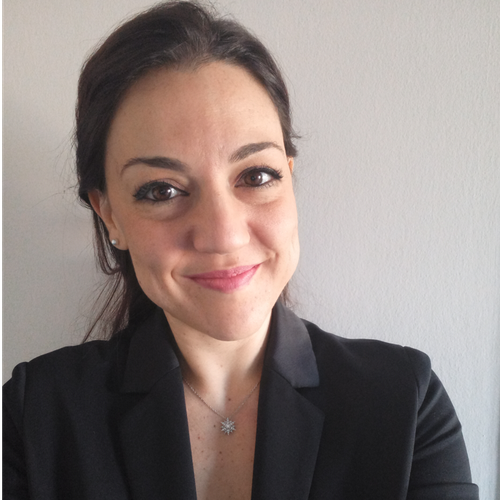
Eleonora Marino is responsible for the development of the Prima Open Additive business program, dedicated to strategic partnerships and innovation path for Prima Additive. In the last years, she has been appointed as Innovation and strategic projects Manager in Prima Industrie group, where she collaborated in launching the new Prima Additive Manufacturing path.
She managed strategic partnerships for Prima Industrie and she coordinated innovation projects. In her role, she managed initiatives in the field of innovation and technology for manufacturing, collaborations with European research centres and enterprises, R&D partnerships and European-funded projects, and scouting and assessing value for new businesses and technologies. She has experience in supporting the vision of open innovation in the manufacturing field.
Dimitris Mavrikios
COO at EIT Manufacturing
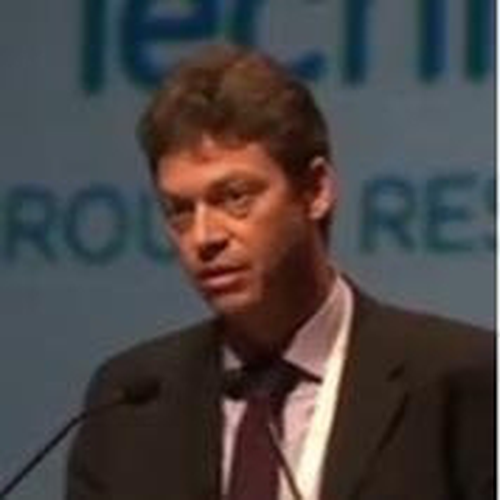
Joaquim Menezes
President at Iberomoldes SGPS, SA
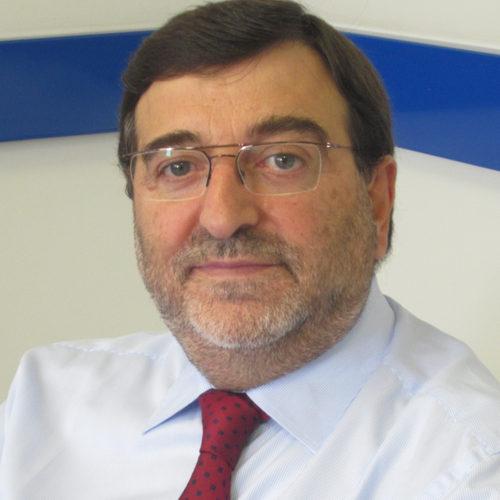
Lina Moritz
Senior Leader Public Partnership at Volvo
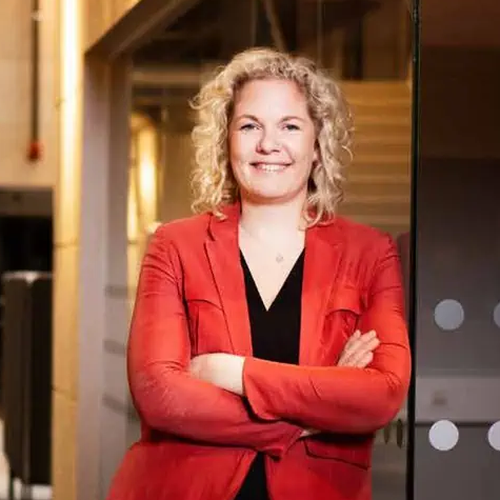
Cristina Oyon
Director of technology, innovation and sustainability at SPRI
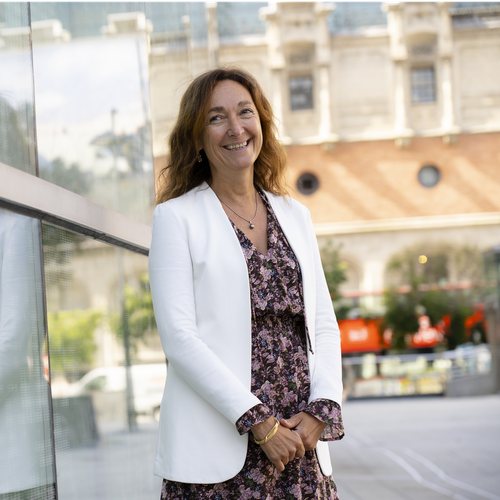
Cristina Oyon is Director of Technology, Innovation and Sustainability at SPRI (www.spri.eus), the Business Development Agency of the Basque Country. She is in charge of the design, implementation, communication, monitoring and evaluation of technology and business development strategies at regional level, including the RIS3 Regional Innovation Smart Specialization Strategy. She holds a degree in Physics from the University of the Basque Country. She has been member of the High Level Industrial Roundtable 'Industry 2030' of the European Commission and is member of the Industrial Forum, which is supporting the European Commission in the analysis of the different industrial ecosystems and assessing the risks and needs of industry in the sustainable and digital transition. Besides, she leads the Women in Manufacturing expert group launched by the World Manufacturing Foundation and the Basque Net Zero Industrial Super Cluster, the initiate that aims to accelerate the path to net zero emissions in the Basque Country, fostering energy supply decarbonization and energy efficiency in the industrial sectors while creating market opportunities based on the scale-up of the new technologies and innovative services.
Luca Perego
Head of Unit “Innovation and EIT” at European Commission
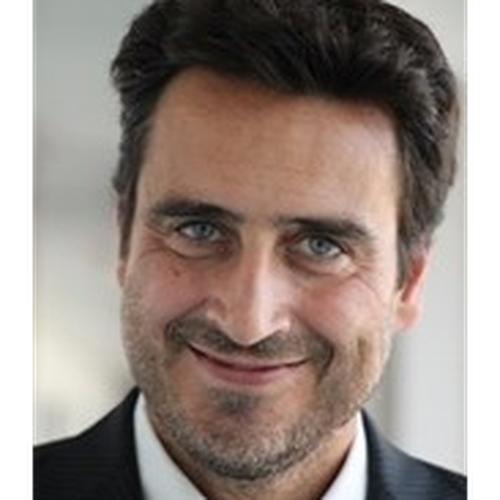
Luca Perego is the Head of Unit “Innovation and EIT” in the Directorate General for education, youth, sport and culture of the European Commission. The unit reinforces the knowledge triangle between education, business and research. It is in charge of identifying and promoting excellence and innovation in education and research. He is an electronic engineer with 25 years of experience in private and public sector management. He joined the European Commission in 2010 after having held the Information Technology department of an Italian insurance group. He set up and launched the new Eur-Lex at the Publications Office of the European Union, and then he worked as Assistant to the Director General for education, youth, sport and culture from 2015 to 2019. Born in Verona, Italy, he is trilingual Italian, French and English.
Björn Sautter
Executive Expert for Industrie 4.0 ecosystems at Festo SE & Co. KG
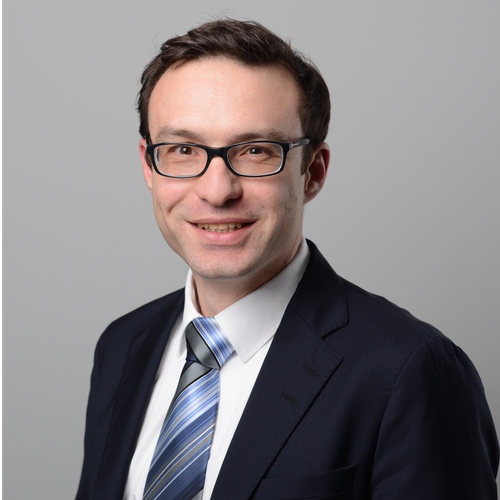
Björn is executive expert for Industrie 4.0 ecosystems at Festo, a leading world-wide supplier of automation technology and a world market leader in technical training and education. He is member of the German Plattform Industrie 4.0 and the Made in Europe Partnership Board – closely working together with partners from science, industry, and public government. He is leading the ManuFuture Working Group on Decentralised Technical Intelligence (DTI) for increased manufacturing performance and is involved in various national and international activities on future-oriented industrial transformation.
Before joining Festo, Björn worked as a strategic advisor and facilitated participative ‘forward- and outward-looking’ strategy processes in various industries. He holds a PhD in economic geography from the University of Stuttgart and a Certified Corporate Foresight Professional degree from the EBS University for Business and Law in Germany. As a researcher, he focused on entrepreneurship, business clusters and innovation systems in the globalizing knowledge economy.
Martin Schäfer
Senior Key Expert at Siemens AG
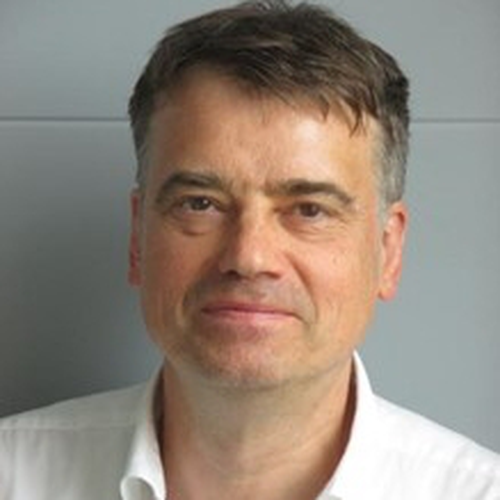
Martin Schäfer is Senior Key Expert Additive Manufacturing at the Research and Development Department of Siemens AG. He studied "Technical Environmental Protection" at the Technical University of Berlin, having graduated with the thesis: "Basic investigations on the recovery of copper from electroplating wastewater by means of liquid-liquid extraction". Since 1995, he has been a research engineer at Siemens AG, doing research work in the field of cleaning processes and material recycling.
From 2000 to 2014, he was responsible for the area of rapid prototyping in respect to additive manufacturing with a focus on the development of AM processes and materials, for example: stereolithography here especially "ceramic filled SL resins for the production of ceramic high-performance components”, as well as the powder-based laser melting process in the area of high-temperature alloys; process integration of additive
manufacturing into industrial production chains; development of strategic AM production concepts and projects as well as coordination of research projects in the AM field; development of AM quality management especially on standardization and qualification of AM process and materials.
Since 2006, he has been the Chairman of the "European AM platform", and since 2010, the Chairman of the DIN working committee "Additive Manfacturing" and Chairman of the German mirror committee of the CEN/TC 438 AM.
Since March 2021, he has also been the Chairman of NA 145 DIN Standardization Committee on Materials Technology (NWT).
Lucilla Sioli
Director, Artificial Intelligence and Digital Industry of European Commission, DG CONNECT
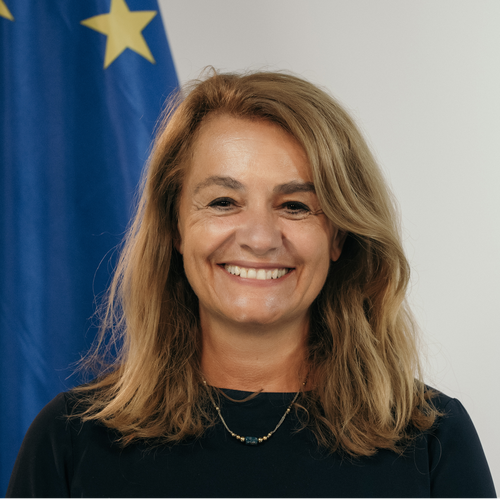
Ms Lucilla Sioli is the Director for "Artificial Intelligence and Digital Industry" within Directorate-General CONNECT at the European Commission. She is responsible for the coordination of the European digitisation of industry strategy and for policy development in the areas of artificial intelligence (AI) and semiconductors. The Directorate also supports R&D&I in key digital industrial technologies, including microelectronics, photonics, robotics and AI. Lucilla holds a PhD in economics from the University of Southampton (UK) and one from the Catholic University of Milan (Italy) and has been a civil servant with the European Commission since 1997.
Egbert-Jan Sol
Smart Industry program director of TNO & smart industry program office
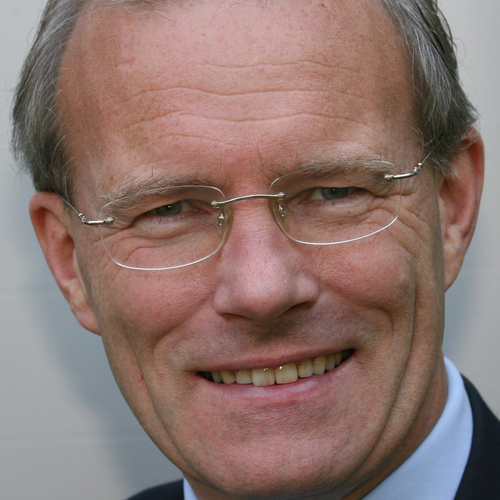
Dr Ir Egbert-Jan Sol (1956) is assigned from TNO Industry as program director of the Smart Industry program, the Dutch Industrie 4.0 platform with 50 fieldlabs, 5 EDIH’s, the Smart Makers Academy and the NXT GEN Hightech project.
Egbert-Jan Sol has a Master’s and Doctor’s degree in Mechanical Engineering from the TU/e. He has 49 years of experience with all kinds of digital systems, worked 43 years in the industry (Philips, TataSteel, Atos, Ericsson) and R&D (TNO) of which 20 years in senior management positions (CTO, R&D managing director) and 18 years as parttime professor. He is a board member of EFFRA and actively involved in the Manufuture Digital Technical Intelligence discussion.
Johan Stahre
Professor at Chalmers University
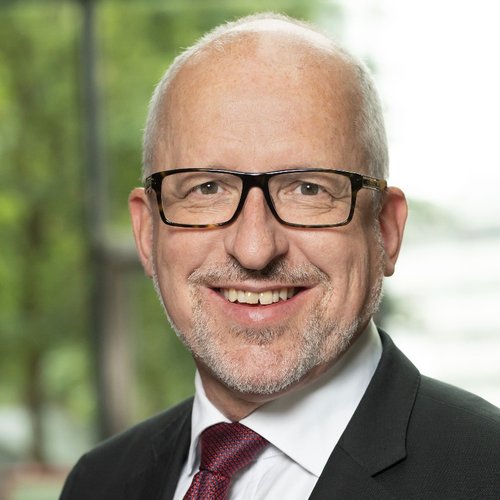
Professor Johan Stahre has been strongly engaged in developing Manufacturing research and innovation programmes for a long time, examples are Produktion2030, EFFRA, Manufuture, EIT Manufacturing, and working groups within the World Economic Forum. His present position is Chair Professor and head of the Division of Production Systems at Chalmers University of Technology in Göteborg, Sweden. Professor Stahre’s research focus is on human-centred manufacturing, this also includes human upskilling and augmentation and research on the future of industrial work.
Johan Svenningstorp
Director Research and Technology Devlopment Operations of Volvo Group
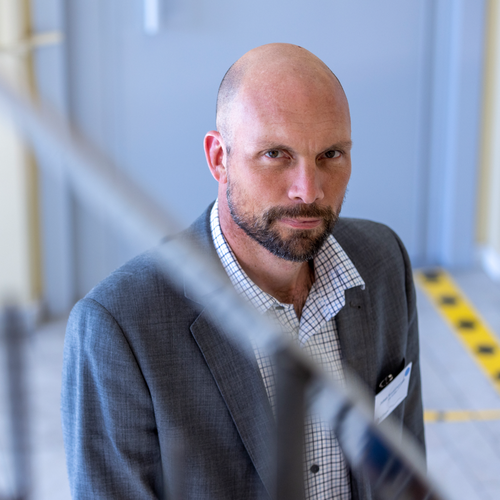
Johan Svenningstorp is the Director of Research and Technology Development for Volvo Group Operations. In this role, his focus lies on Digital, smart Connected and Flexible Operations the technologies to solve these include Simulations, AI-enabled Engineering Automation, IoT, and Collaborative Robots worker Augmentation. He has been working in industrial collaboration in the range from Small start collaboration up to large Public funding multinational multi-industry projects.
Marco Taisch
Full Professor at Politecnico di Milano
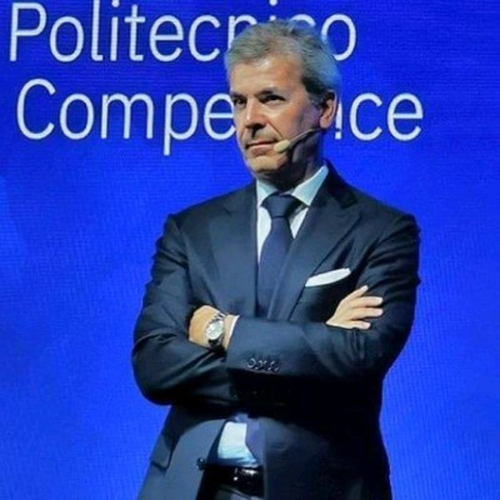
Marco Taisch is Full Professor at Politecnico di Milano, where he teaches Sustainable and Digital Manufacturing, and Operations Management. He is one of the coordinators of the Manufacturing Group of the School of Management of Politecnico di Milano. During his academic career, he has been the Rector's delegate for Placement and Alumni, Director of the MBA and Executive MBA of MIP, the Business School of Politecnico di Milano. Since 2002, he has been particularly dedicated to the study of technological trends, carrying out some technological roadmaps and Technology Foresight studies on manufacturing as a consultant for the European Commission.
He is Vice-president of EFFRA (European Factories of the Future Research Association), member of the Board of Cluster Italiano Fabbrica Intelligente and of member of the Cluster Lombardo Fabbrica Intelligente.
He took part to the Advisory Board of the Italian Industry 4.0 Plan, coordinated by the Ministry of Economic Development (Former Minister Carlo Calenda) and he supported the Lombardy Region in defining the industrial and reshoring policies under the commission of the then Lombardy Region’s President Roberto Maroni.
He is co-founder and Scientific Chairman of the World Manufacturing Foundation, which yearly organizes the World Manufacturing Forum, the global event that defines the Manufacturing agenda and which is endorsed by the European Commission.
He is currently a member of the Unicredit Territorial Advisory Board for the Lombardy Region.
He is President of MADE – Competence Center Industria 4.0, the largest among the 8 Italian Competence
Centers created by the Industry 4.0 National Plan.
He was founding partner of Holonix, a spin-off of Politecnico di Milano, which he exited in 2017 to create, in March 2018, Miraitek4.0, another spin-off of Politecnico di Milano, whose activity concentrates on Industry
4.0.
He currently works as a consultant for different companies such as Leonardo or Thales Alenia Space; for these companies, he has developed, together with a team, projects aimed to improve digitalization and production processes.
Rui Tocha
General-Manager at European Tooling Platform
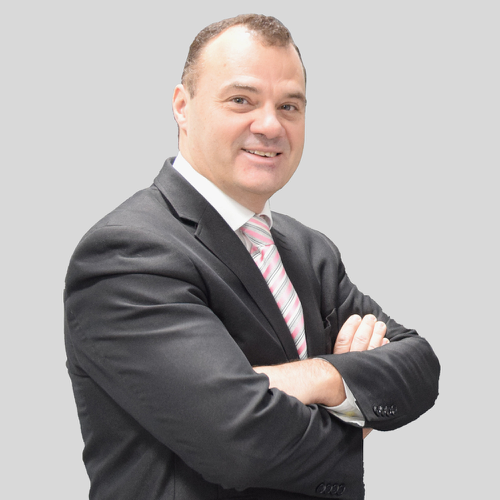
Has been the General Manager of the EUROPEAN TOOLING PLATFORM (MANUFUTURE Sub-Platform) since 1998. Economist and has a master’s degree in International Economy from Lisbon School of Economics & Management (University of Lisbon). Now 55 years old, Rui Tocha started his career working in the Portuguese Ministry of Industry from 1995 to 1997. Since 1997, he has been general-manager of CENTIMFE, the Portuguese Technological Center for the Mouldmaking, Special Tooling and Plastic Industries, and the general manager of POOL-NET – Portuguese Tooling & Plastics Network (assuming the coordination of the Portuguese Engineering & Tooling Cluster – Moulds & Plastics). He has been a member of the PORTUGAL Clusters board (the Portuguese Clusters Network), since 2017 and a member of the Strategic Committee for the Portuguese INDUSTRY 4.0 Platform (created by the Portuguese Ministry of Economy). He also represents CENTIMFE in EFFRA – General Assembly and integrates several working groups supporting the industrial policy at European, National and Regional levels. Finally, since 2019, he has been an Invited Professor at Politécnico de Leiria in the areas of management & innovation.
Sam Turner
Chief Technology Officer at HVM Catapult
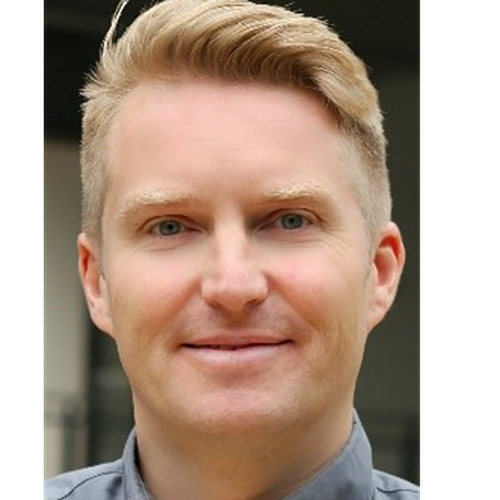
Professor Sam Turner is the Chief Technology Officer (CTO) of the High Value Manufacturing (HVM) Catapult. Sam works across the HVM Catapult centres and stakeholders, including government, to develop manufacturing capability strategy for the UK. Sam has worked on the Made Smarter strategy implementation group , chaired the D4I digital industry group, the Through Life Engineering Services (TES) Council and the IMechE Manufacturing Industries Division, The TRIB Infrastructure working group and the Cross Catapult Research & Technology Group. Sam currently leads the cross HVM Catapult Digital and Net Zero teams and strategy development. He joined the HVM Catapult team in 2017 from his role as CTO of the Advanced Manufacturing Research Centre (AMRC) with Boeing, where he had been part of the original start up team and had led the machining group. Sam has over 25 years experience in manufacturing innovation working across the aerospace, stell, defence and automotive sectors.
Roberto Viola
Director General DG Connect of European Commission
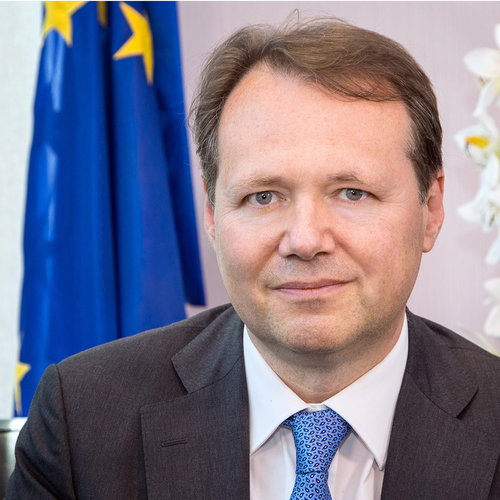
Riikka Virkkunen
professor of practice at VTT Technical Research Centre of Finland Ltd.
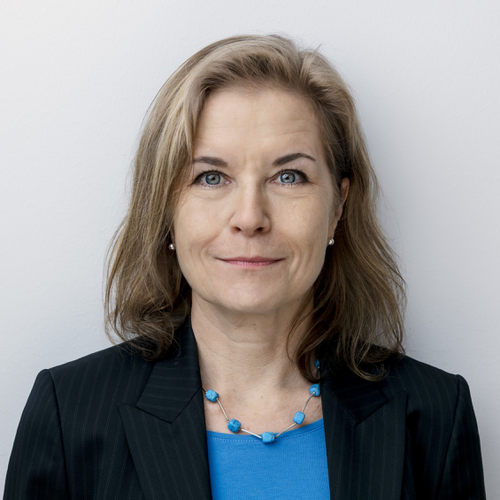
Dr Riikka Virkkunen is a Professor of Practice at VTT with a passion for industrial renewal and digitalization. She has worked in various manager positions at VTT and led VTT’s strategic initiative on Industrial Renewal. She is Co-chair of the Made In Europe (MIE) PPP and a member of EFFRA and MIE boards. She is also a member of Manufuture HLG and the EIT Manufacturing advisory board for the CLC North. In her home country, Virkkunen supports the Ministry of Economics and Employment in executing the national Artificial Intelligence 4.0 program. Virkkunen holds a PhD in computational materials physics.
